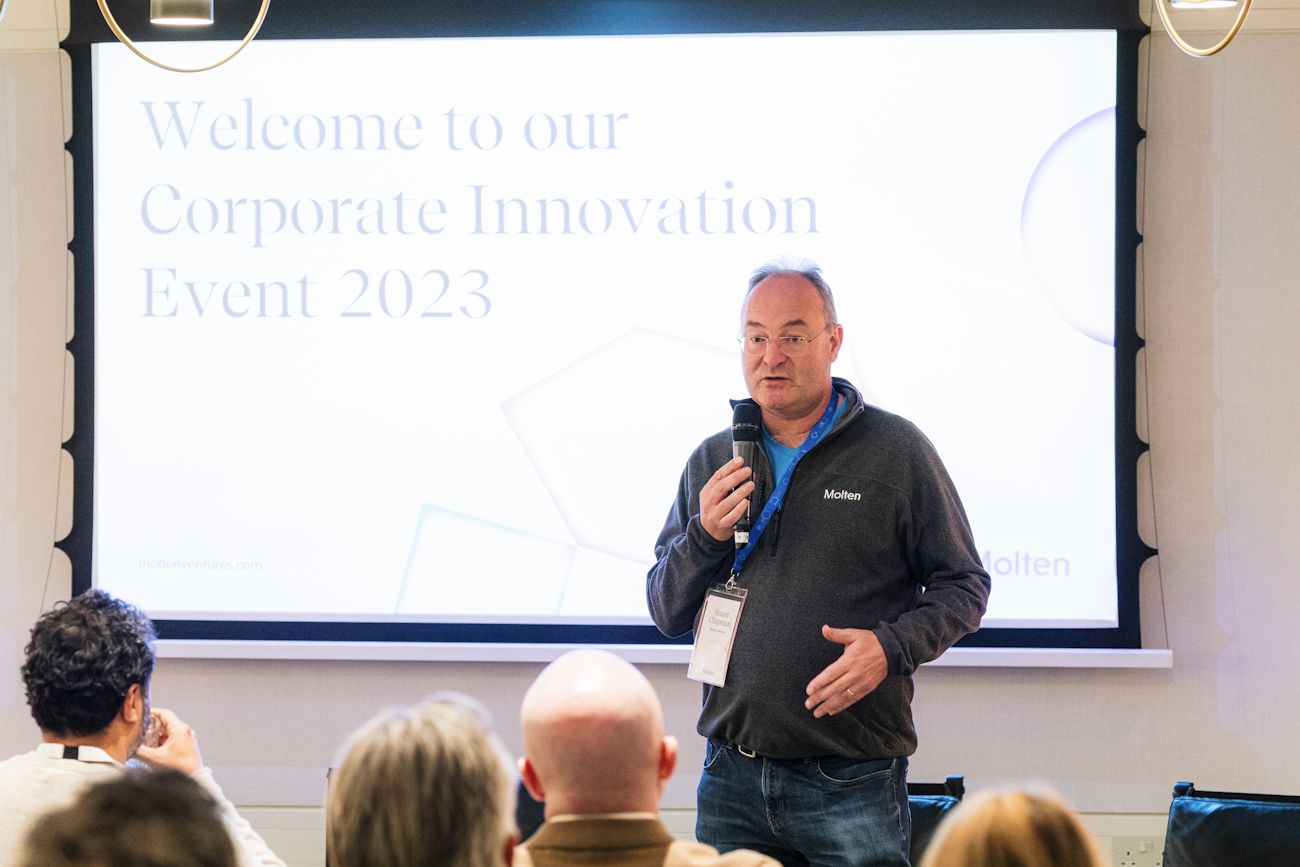In November, we hosted the second annual Corporate Innovation event. The discussion, under Chatham House rules, offered a deep dive into the intricate dance between startups and corporates and provided a candid exploration of the challenges and strategies inherent in these collaborations.
We held two panels: the first explored the nuts & bolts of driving true collaboration in corporate-startup relationships; the second was a case study on how founders, Corporate Venture Capital (CVC) and traditional VC collaborate.
Afterwards, the startup leaders and corporate leaders participated in a speed-networking activity, resulting in many powerful introductions and conversations.
For those who missed it, the key takeaways of the panel discussions are below.













